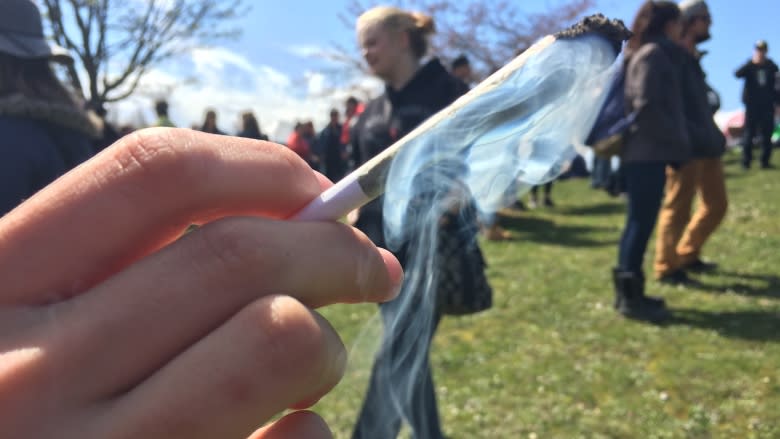Tougher laws needed to combat drug-impaired drivers, says Halifax officer
A Halifax Regional Police officer is calling for tougher legislation to combat drug-impaired driving as the federal government prepares to legalize marijuana a year from now.
Const. John McLeod said drug-impaired driving is a growing problem in Canada and he doesn't foresee that changing any time soon.
"With the potential of legalization on the horizon, you would expect that it's going to continue to rise," said McLeod, who instructs officers on how to deal with impaired-driving cases.
According to Statistics Canada, the number of drug-impaired-driving cases reported by police across the country almost doubled between 2009 and 2015, although they remain far less common than reported drunk-driving cases.
Tougher laws
McLeod would like the Nova Scotia government to give police more power to keep drug-impaired drivers off the roads by allowing officers to suspend their licences. Currently, he said, those drivers can get their keys back after they have been charged and return to the road as their case winds through the courts.
In Nova Scotia there are no automatic fines, suspensions or vehicle impoundment following an arrest for driving while impaired by a drug. Those provisions are only in place for drunk driving.
"With alcohol, when you're charged, you're given a three-month suspension automatically through the motor vehicle registry," he said.
"Provincial suspensions for drug-impaired driving, vehicle impoundment, those kind of things have shown in other jurisdictions to be very helpful."
Brian Taylor, a spokesperson for Nova Scotia's Justice Department, said in an email there are plans to "update legislation and regulations to address the legalization of marijuana including the Motor Vehicle Act."
He did not detail what changes the provincial government is considering.
McLeod said it's important to get ahead of the problem before the legalization of cannabis, expected in July 2018. He supports the federal government's Bill C-46 that updates impaired-driving laws and gives police more power.
"In that legislation is some of the strongest impaired-driving legislation we've seen since the beginning. And we're hoping that they've learned from those mistakes from alcohol," said McLeod.
Don't drive high
McLeod said there's no question: people who are high can be impaired drivers, but he wonders if people are getting the message.
"It's simple. It's the same message we'd give you if you're planning on going out somewhere to drink. If you are going to drink or use drugs, then don't drive."
RCMP Const. Chad Morrison is one of 15 officers from police forces across Nova Scotia who train other officers to detect impaired drivers. He cautioned Halifax police commissioners at a recent meeting on the potential impact of the legalization of cannabis.
Morrison is also one of 52 officers, from the RCMP and local police forces, in the province that are certified in drug recognition evaluation or DRE.
"There may be areas, like the rural areas, where we would want to have more of those officers so that we're better able to detect impaired, drug-impaired drivers in those locations."
Educating drivers key
DRE is is a 12-step process an officer uses to determine what category or categories of drug might be impairing a driver. If an officer determines a suspect is impaired by a drug, they can demand a blood or urine sample that will analyzed at a lab.
There are more DRE-trained officers in the province's large population centres like Halifax, which has 26. More rural areas have fewer: For example, there is only one in Hants County, two in Annapolis County and four in Cape Breton County. Other areas, such as Victoria County and Queen's County, have none.
Morrison also thinks educating drivers, not unlike drinking and driving campaigns, is key.
"I think that people who use marijuana know that it's going to have an effect on them. Whether or not they know how that correlates to their ability to drive a motor vehicle, I'm not sure. I certainly think it's important for the public to be educated on that so that there's no question that that is the case."



